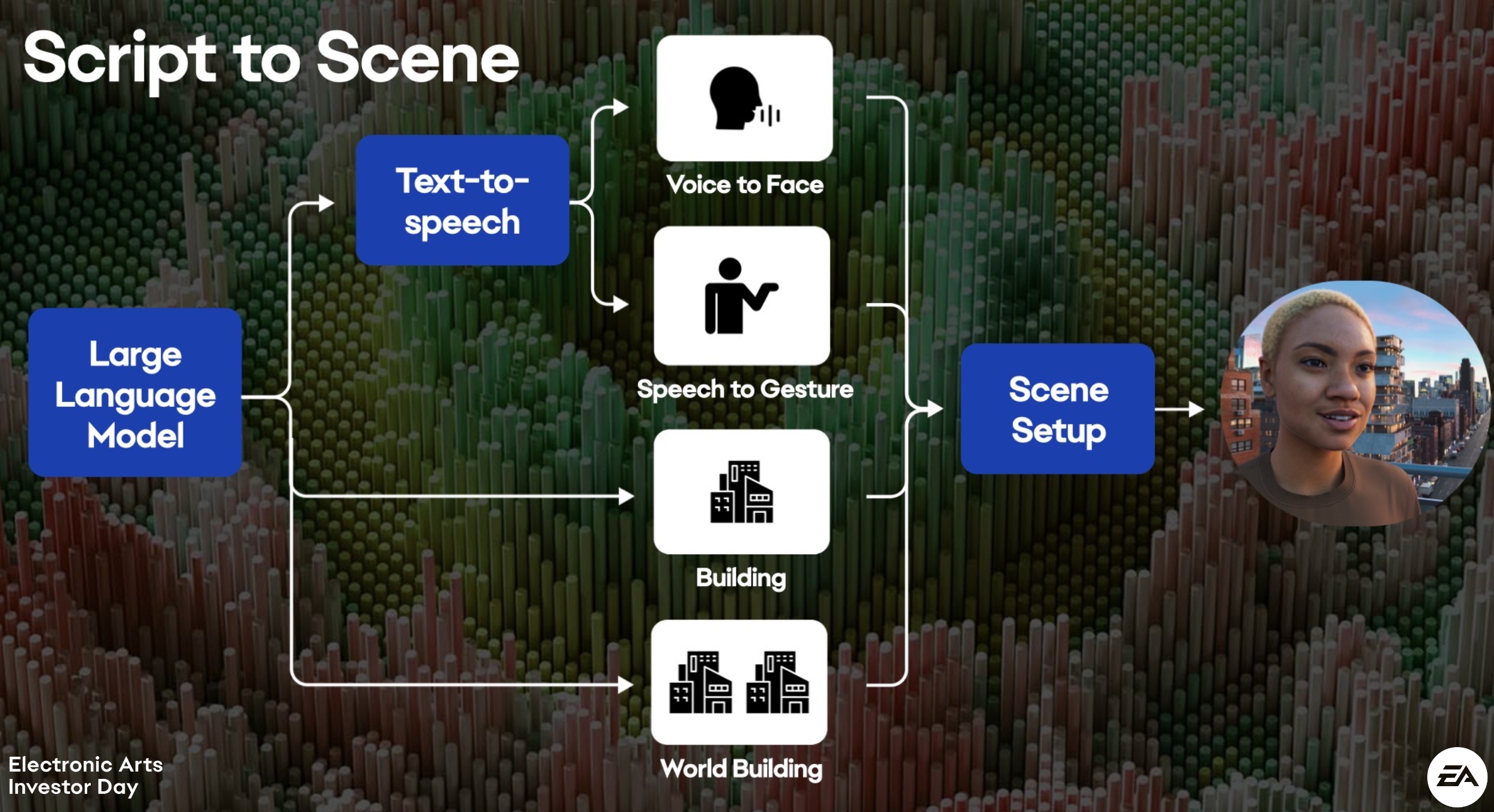Electronic Arts has outlined its growth strategy aimed at growing its online communities and driving user engagement. Here is how the company plans to scale its business in the long term.

Electronic Arts’ long-term growth strategy
During its Investor Day presentation, Electronic Arts said its business is built on three core pillars:
- Making games and experiences for massive online communities;
- Creating “blockbuster interactive storytelling,” i.e. AAA single-player games;
- Building strong communities in, around, and beyond its games.
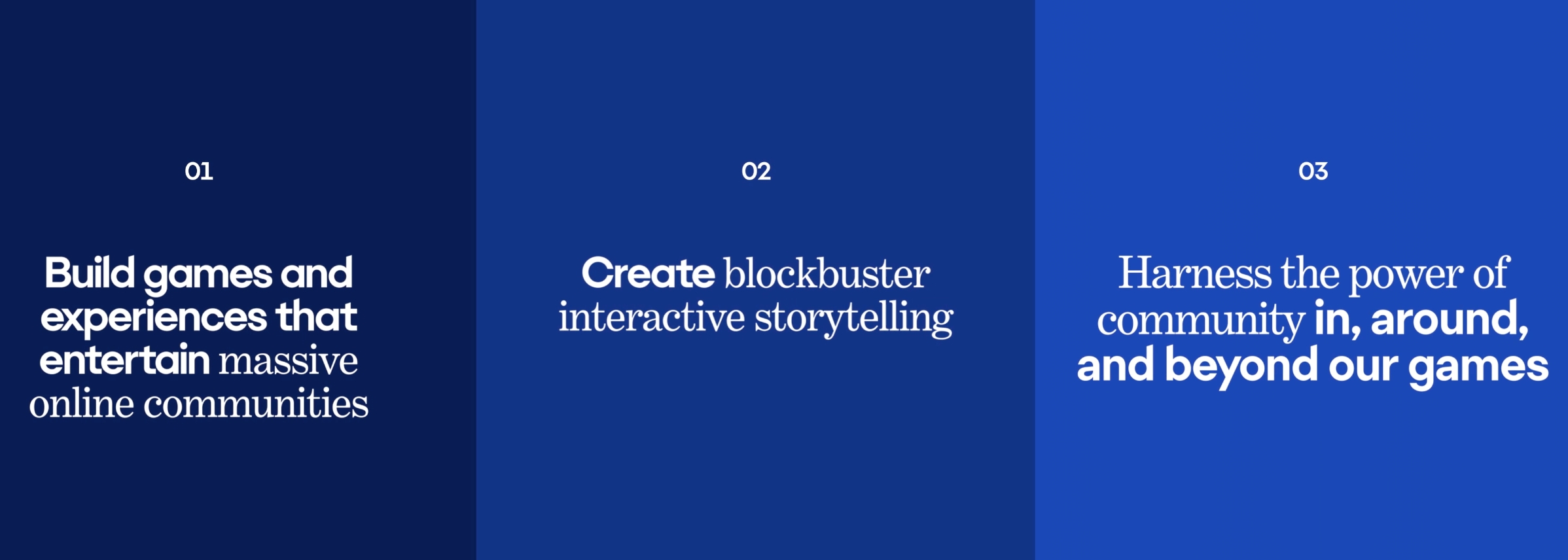
EA also shared some data on its audience and game franchises:
- Its player base has doubled since 2016, and the company plans to double its global audience again to over 1 billion users over the next five years;
- 50% of EA’s audience engages with UGC;
- The Sims franchise has 500 million lifetime players, with 1 billion gallery download and 210 million hours of content watched;
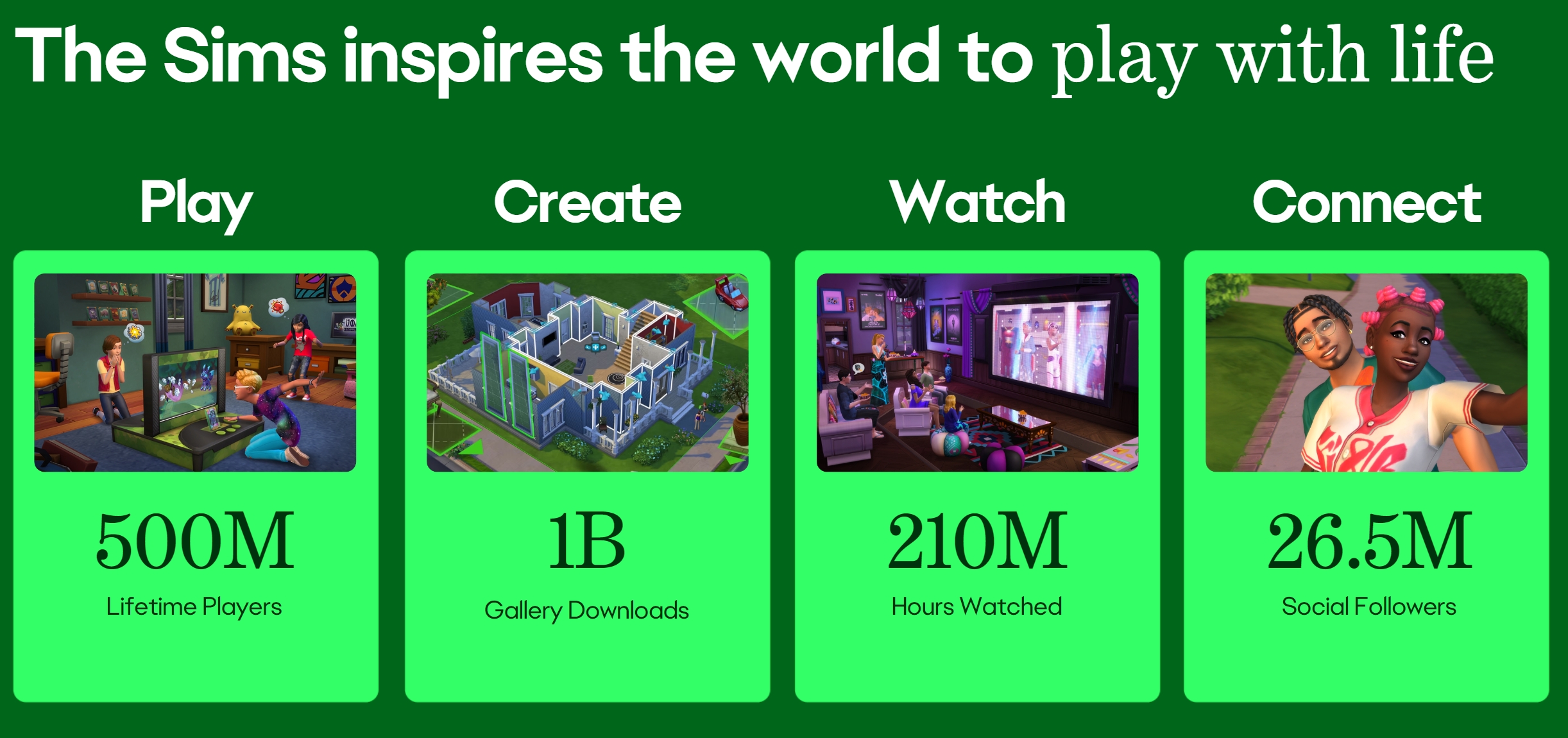
- EA Sports Player Network has over 265 million users, with EA planning to reach new players among Gen-Z sports fans (the company estimates there are over 4 billion sports fans globally, of which 1 billion are Gen-Z);
- The Madden franchise had its strongest year in terms of unique players, net bookings, and MAU, with EA Sports College Football becoming the largest new console launch in North America in 2024;
- EA expects its American Football games to surpass $1 billion in net bookings in FY25 ending March 31, 2025;
- Through its Lucasfilm collaboration, Electronic Arts generated over $5 billion in net bookings for its Star Wars games;
- The Star Wars Jedi series surpassed 40 million players globally, and Respawn Entertainment is now working on the final game in the trilogy;
- Apex Legends has 170 million players life-to-date, and players spent 250 million hours across Battlefield games in the last 12 months.
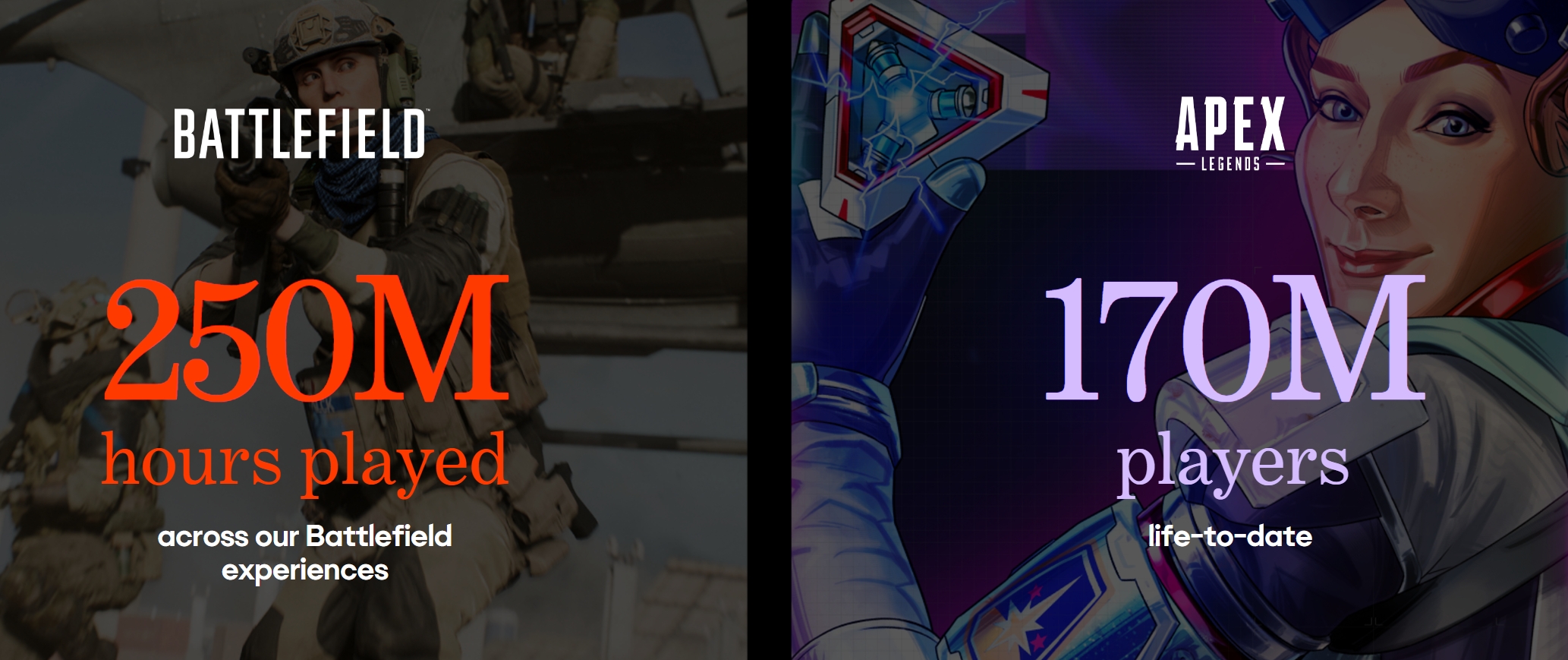
In terms of building communities beyond video games, Electronic Arts mentioned EA Sports App, which soft-launches in Spain this fall on iOS and Android. The company plans to connect real and virtual sports fans through this product by adding features such as newsfeed, social messaging, challenges, and interactive events.
Electronic Arts also expects its growth to outpace the market through FY27 (ending March 31, 2027) and beyond. The company said its growth will be driven “by confidence in our pipeline.”
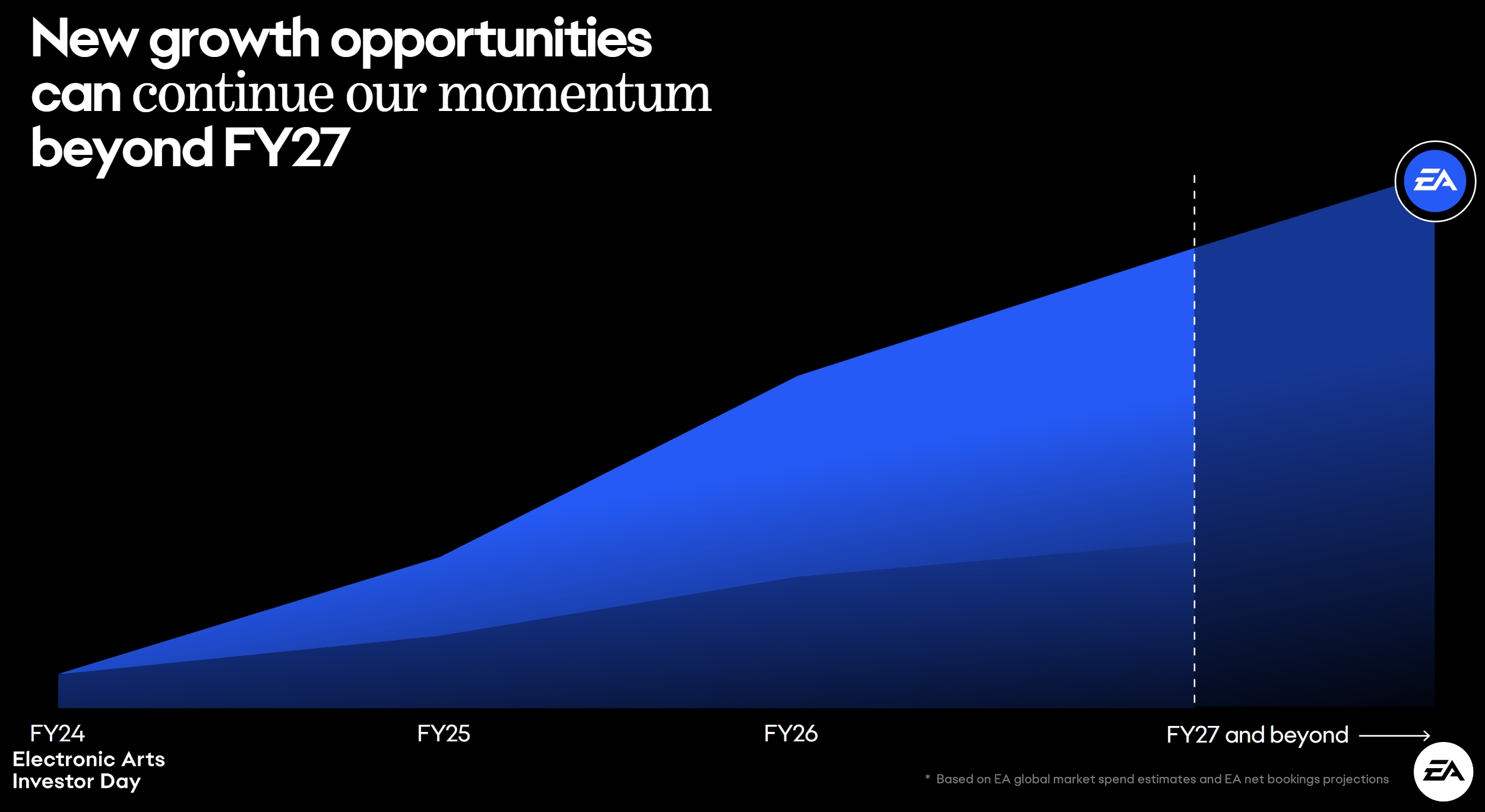
Expanding its core franchises and massive online communities
- According to CFO Stuart Canfield, the company will have six massive online communities over the next three years: EA Sports FC, American Football (Madden + EA Sports College Football), Apex Legends, Battlefield, The Sims, and Skate.
- Electronic Arts estimates the ARPG market revenue at $20 billion (for the 12-month period through July 2024). This includes PC & console markets in the West and mobile markets, excluding East Asia.
- When it comes to the Shooter and Simulation genres, the company estimates their revenue at $11 billion and $9 billion, respectively. EA plans to increase its share in all three areas by expanding its live service franchises and making new single-player AAA games.
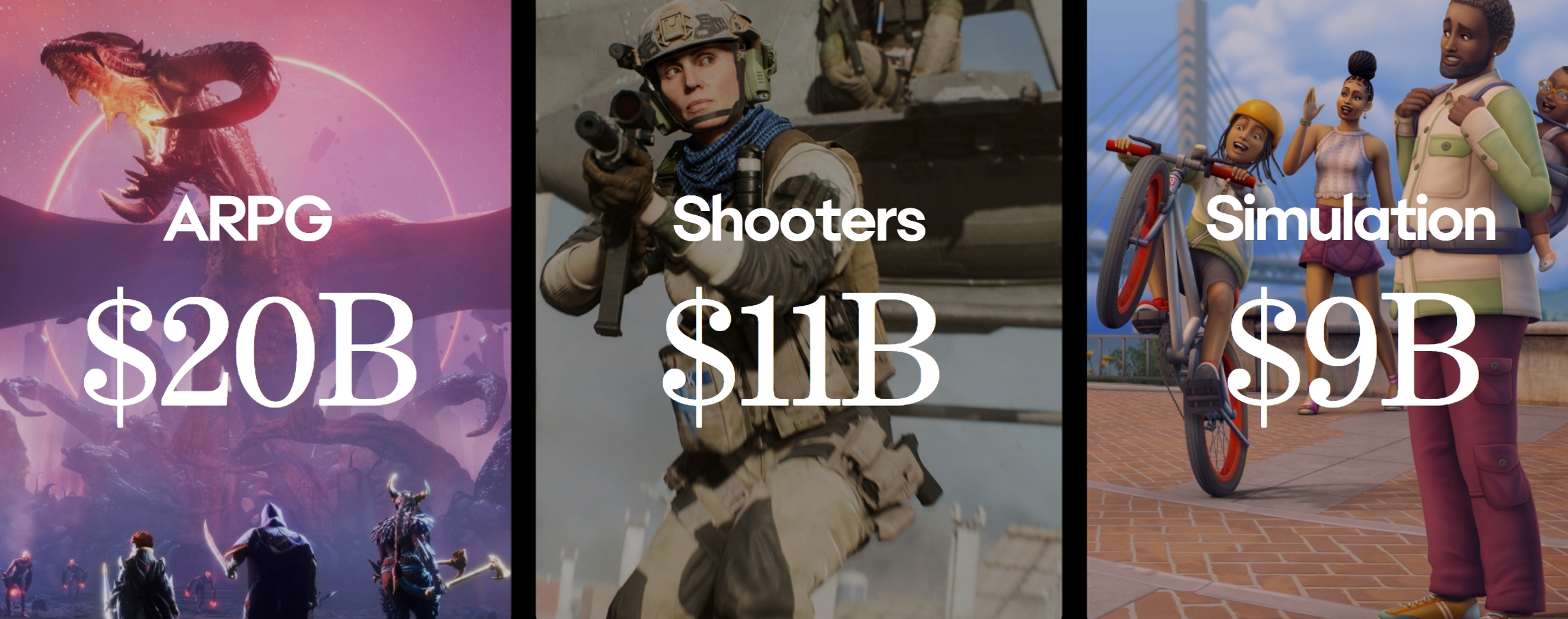
- Instead of making a new Sims game, Electronic Arts plans to turn The Sims 4 the foundation of this franchise. Project Rene, which was previously perceived as The Sims 5, will be a multiplayer expansion with new social features. There will also be My Sims, a “cozy” spin-off, and The Sims Project Stories, a standalone mobile game.
- All these projects will be connected through The Sims Hub with a shared gallery, marketplace, UGC experiences, and social media features.
- EA plans to double The Sims’ net bookings over the next five years. It is now also working on a film adaptation in partnership with Amazon MGM Studio.
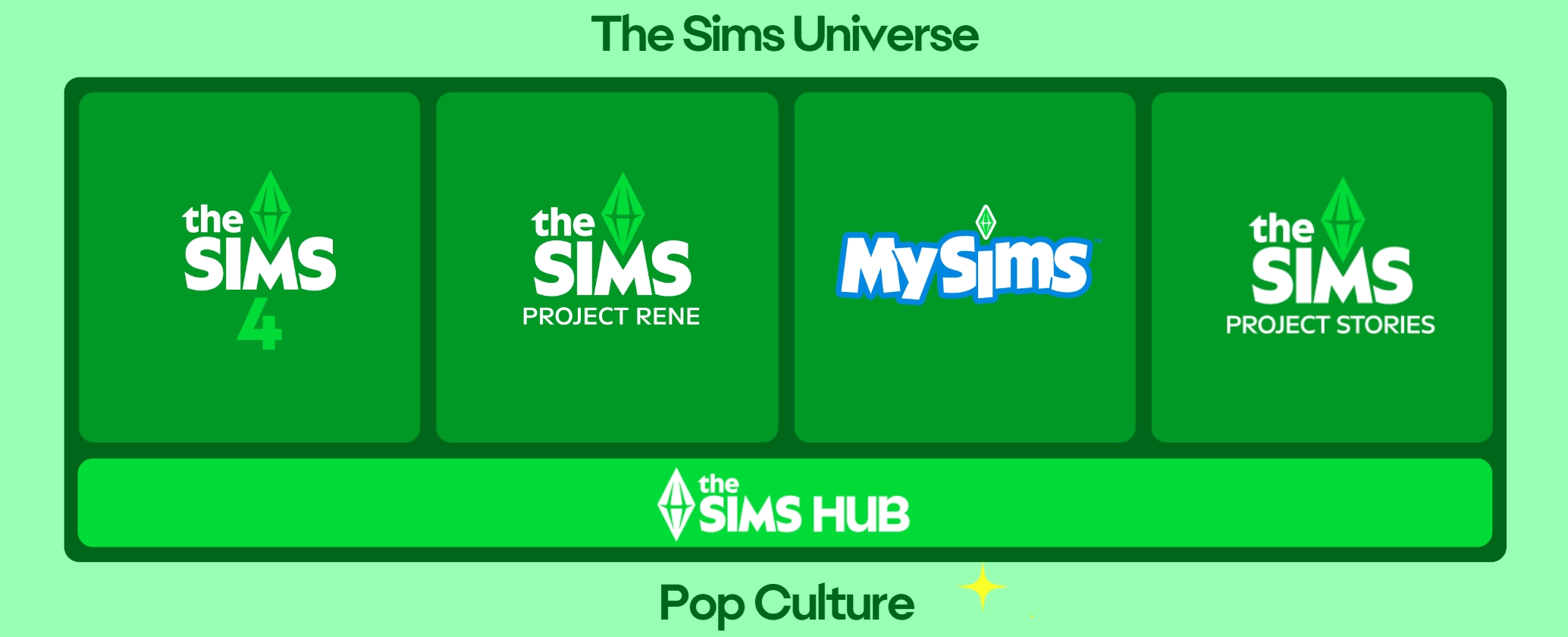
Leveraging genAI to drive development capabilities and UGC
- EA believes that generative AI will help it increase its efficiency, expand the creative capabilities of its development teams, and transform user experiences.
- Chief strategy officer Mihir Vaidya showed a demo where two users generated a playable map with characters and assets from EA’s existing games using natural language descriptions.
- “This remixing of conditional elements would not be possible without EA’s massive proprietary data set, which includes hundreds of thousands of high-quality 3D assets, millions of lines of code, billions of gameplay hours, and trillions of telemetry events,” he said.
“Make it more epic.”
⁰EA Chief Strategy officer Mihir Vaidya demonstrates how EA plans to super-charge user-created game content with AI in this concept video “Imagination to Creation” from EA’s Investor Day event in NYC today. pic.twitter.com/sgBnawF7rK
— Geoff Keighley (@geoffkeighley) September 17, 2024
- This “Imagination to Creation” tech is experimental, so it is unclear how will it work once the final version is released to users. However, the company believes that AI will transform the way players create and interact with UGC.
- “It is the biggest IPs and experiences that will capture the most value, our creative talent, our production strength, our broad portfolio of incredible owned IP, including EA Sports, and our deeply connected global network supercharged by AI,” Vaidya stated.
- Laura Miele, president of EA Entertainment and Technology, noted that EA currently manages over 100 machine learning and large language models on its “central technology platform.”
- Proprietary technology like the Frostbite engine is also an important part of this transformation. With tools and workflows that can be shared between various projects, the company wants to increase the level of partnership between its teams.
- Miele also announced a “Script to Scene” initiative, a set of LLMs and other tools for creating characters and digital worlds from text descriptions.
